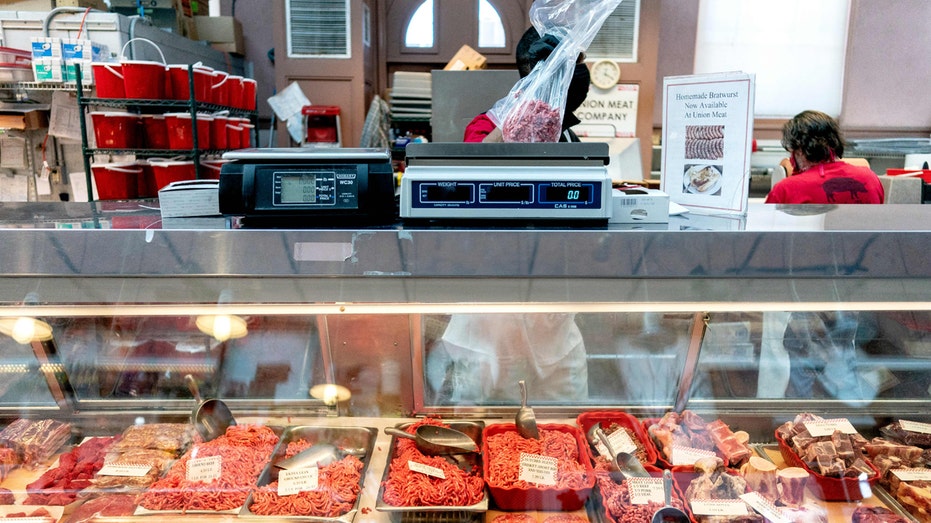Dutch town may ban meat ads in public spaces over climate change: report
The move could make the Dutch city of Haarlem the first in the world to ban most meat ads in public spaces despite backlash from the livestock sector
Nigel Farage: UK in 'real trouble' with energy due to disastrous green policies
Former Brexit Party leader says Britain's lack of energy independence led to an 80% boost in power bills, telling 'Varney & Co.' more increases are likely to come.
Officials in one Dutch city are slated to ban most ads advertising meat in public areas because of its impact on the climate.
The motion was made by the GroenLinks, a green political party, and would go into effect in 2024 in Haarlem, the BBC reported. The meat sector in The Netherlands has opposed the move, saying it stifles free speech.
"Meat is very harmful to the environment. We cannot tell people that there is a climate crisis and encourage them to buy products that are part of it," Ziggy Klazes, a member of GroenLinks who drafted the motion, told the Trouw newspaper.
The move would make Haarlem, just a few miles from Amsterdam, the first city in the world to ban most meat ads. It could include chicken sold in supermarkets and fast food.
I LOST MY JOB WHEN BIDEN CANCELED KEYSTONE PIPELINE, BUT AMERICA NEEDS ENERGY INFRASTRUCTURE JOBS

An employee prepares ground beef for a customer at Union Meat Company in Eastern Market in Washington, DC. The Dutch city of Haarlem could possibly ban most meat ads over its impact on climate change. (Photo by Stefani Reynolds/AFP via Getty Images) / Getty Images)
The local government said it has not decided whether sustainably produced would be included in the ban. The proposal received backlash from the meat industry.
"The authorities are going too far in telling people what's best for them," said a spokesman from the Central Organization (sic) for the Meat Sector.
The BVNL party called it an "unacceptable violation of entrepreneurial freedom," the BBC report said.
The United Nations said 14% of all greenhouse gases are produced by livestock.
GET FOX BUSINESS ON THE GO BY CLICKING HERE
In the United States, the Environmental Protection Agency (EPA) said that in 2020 an estimated 11% of the U.S.'s total greenhouse gas emissions came from the agriculture sector, compared to 27% from transportation, 25% from energy, and 24% from industry.





















